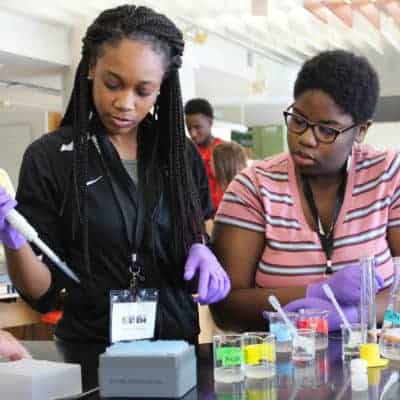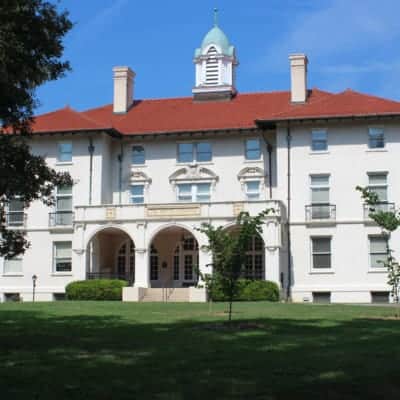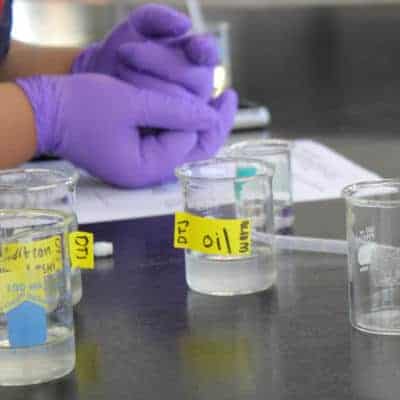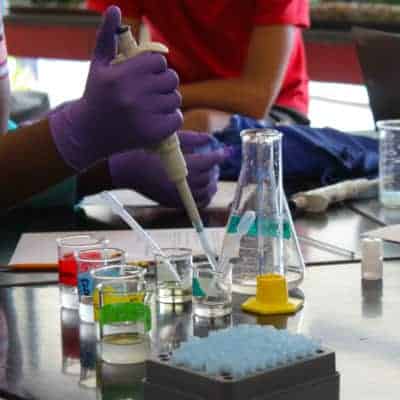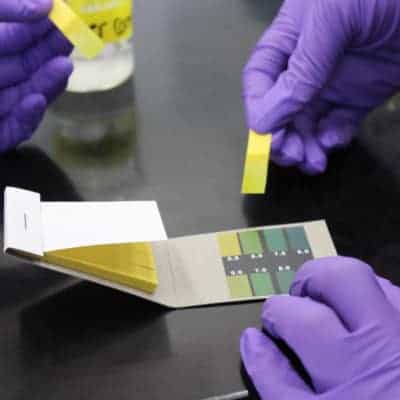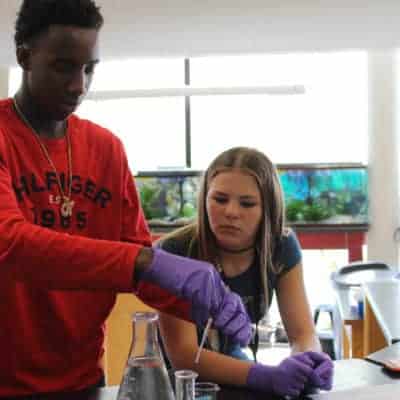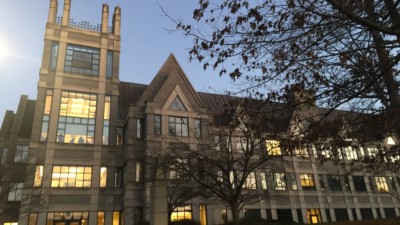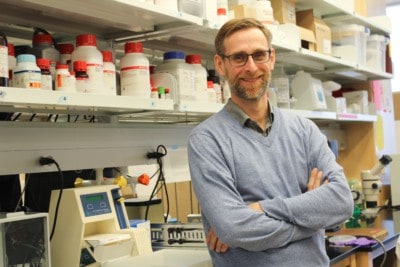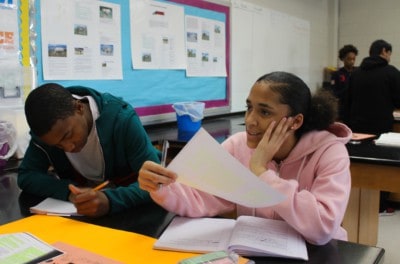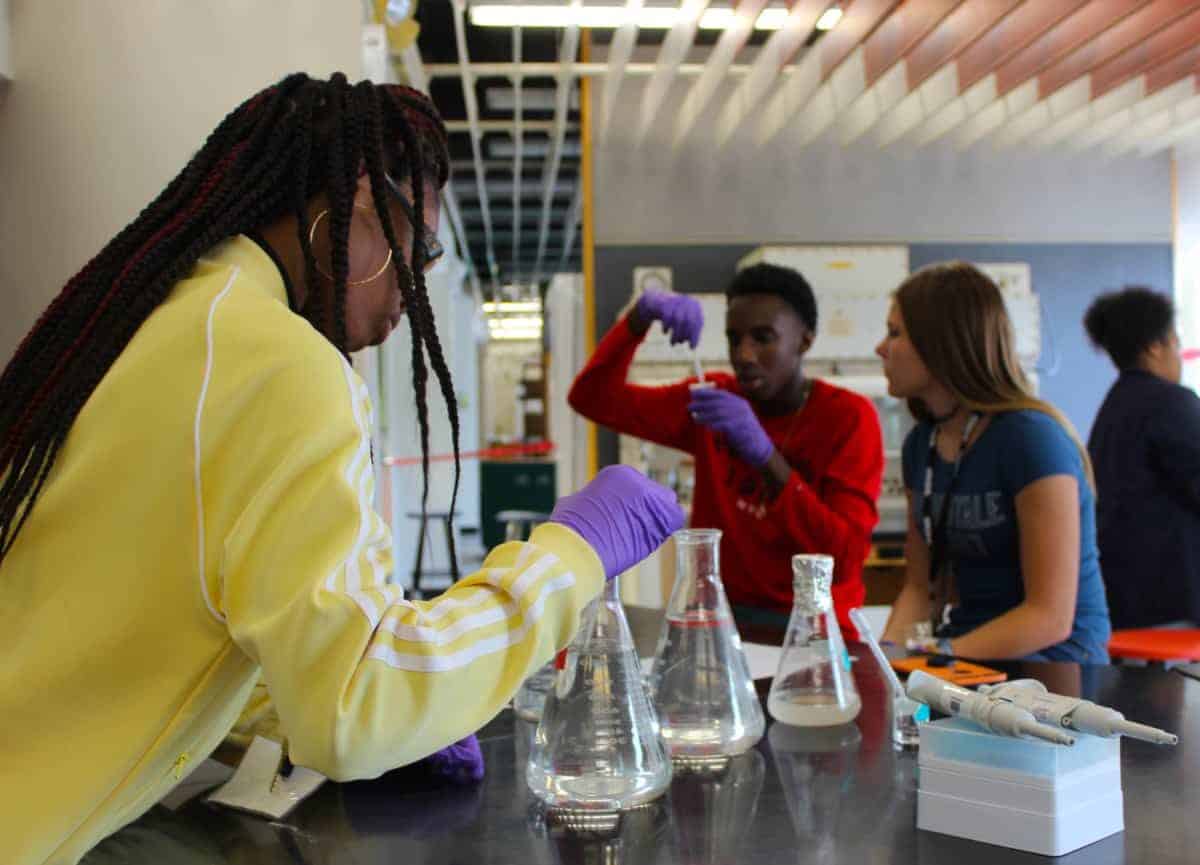
High school students pored over tables topped with beakers, lab flasks, and test tubes at the North Carolina School of Science and Math last week. Pipettes in hand, the students prepared to conduct an experiment to test the best conditions for oil-eating microbes as they simulated saving the Gulf of Mexico from an oil spill.
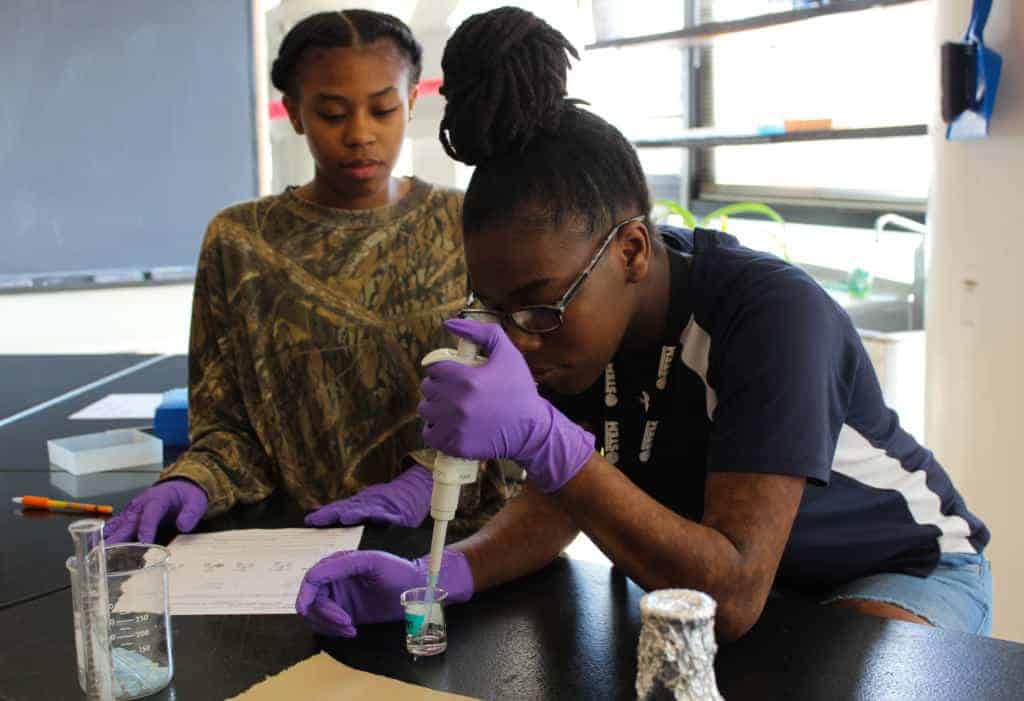
“We’re looking at how scientists work together to solve environmental problems in their community,” said Caroline Harris, an instructor and project officer for Eastern North Carolina STEM.
Eastern North Carolina STEM (ENC STEM) launched in 2013 with programming to provide STEM learning opportunities for high school students in disadvantaged communities. Now in its sixth year, approximately 100 students participated in two weeks of ENC STEM summer programming at Northampton County High School. Of those students, 70 were selected to complete the third week at the North Carolina School of Science and Math (NCSSM).
“Our students have unlimited potential in eastern North Carolina. Unlimited,” said Andrew Lakis, Executive Director of Teach For America-Eastern North Carolina. “But the unfortunate reality is they don’t have the access to opportunity that they should have.”
ENC STEM was founded by Teach For America-Eastern North Carolina alumni. Elaina Sabatine, co-director of ENC STEM, said the organization’s leadership team is comprised of math and science teachers who recognized the importance of quality STEM education.
“For us, access to STEM is an issue of social justice,” Sabatine said. “We talk to our kids about the importance of STEM education . . . but the opportunities that they have are contingent upon their proximity to resources, and that’s kind of the challenge in eastern NC.”
That’s why students’ course loads included a leadership course not directly related to STEM titled, “Social Justice and Advocacy.”
“Ultimately, our instructors have the flexibility to create the course that they want,” Sabatine said. “Those instructors wanted students to have the opportunity to work on a topic that was relevant and interesting to them.”
Away from the test tubes and math problems, students formed groups to create a final narrative project on a topic from their leadership class. Topics included mass incarceration, autism discrimination, police brutality, the wage gap, and teen suicide.
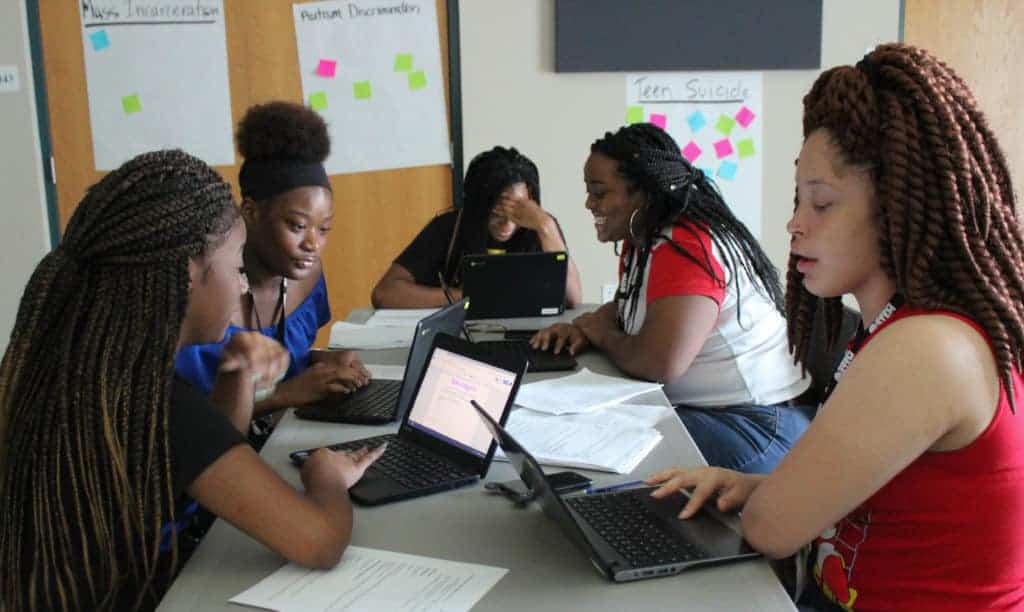
“We chose teen suicide because I feel like it really connects to my life, being that a person in my family has done that while they were a teen. It happens so frequently,” said rising senior Rashera Galloway. “The largest rate increase for teen suicide is among black adolescents. I’m a black female. I know how it feels…We are in school. We have sports. I live in a low income community, so I [have] to help supply for my family, too. I feel the stress.”
“Sometimes people don’t know what to do. They don’t know who to call. I feel like it just needs to get noticed. It goes under-acknowledged,” said Galloway.
Alyssa Garner, Galloway’s project partner, said that learning more about teen suicide can save teens who have a whole life ahead of them.
“It could be one of our friends that could commit suicide tonight, and some of us might not know because we didn’t recognize the signs that they were depressed and going through things,” said Garner. “I feel like if everyone gets more involved in learning about teen suicide and the major cause of it, we can check on our friends and family more.”
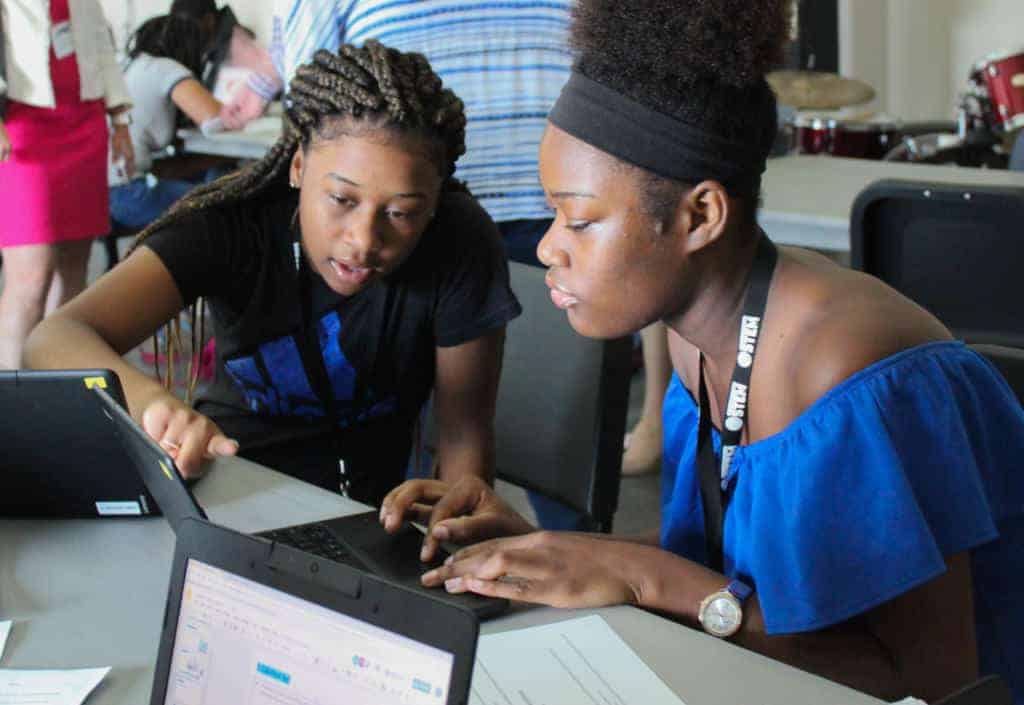
Across the table, Dayzsha Joyner and Aniziah Glenn compiled presentations on the gender wage gap.
“A lot of people know about the gender wage gap, but not a lot of people speak on the gender wage gap. It’s very transparent that it’s happening, but not many people are leaning towards changing it,” said Joyner, a rising senior who said she had experienced a difference in pay at her place of employment. “It’s not like women don’t want to work…If a woman is there to work and she’s doing the same thing as a man, then there’s no way that a man should get more money than she [does].”
Joyner and Glenn said the leadership course served as an outlet for an issue they could relate to and were passionate about. However, their primary interests remained in STEM. Joyner hopes to be a neurosurgeon and study biochemistry in college, while Glenn said her favorite subject has always been math.
“In math right now, we are learning matrices, and I haven’t really been exposed to that until I started this [program],” Glenn said. “I see that it also ties with biology because we are learning about amino acids and how it relates to matrices.”
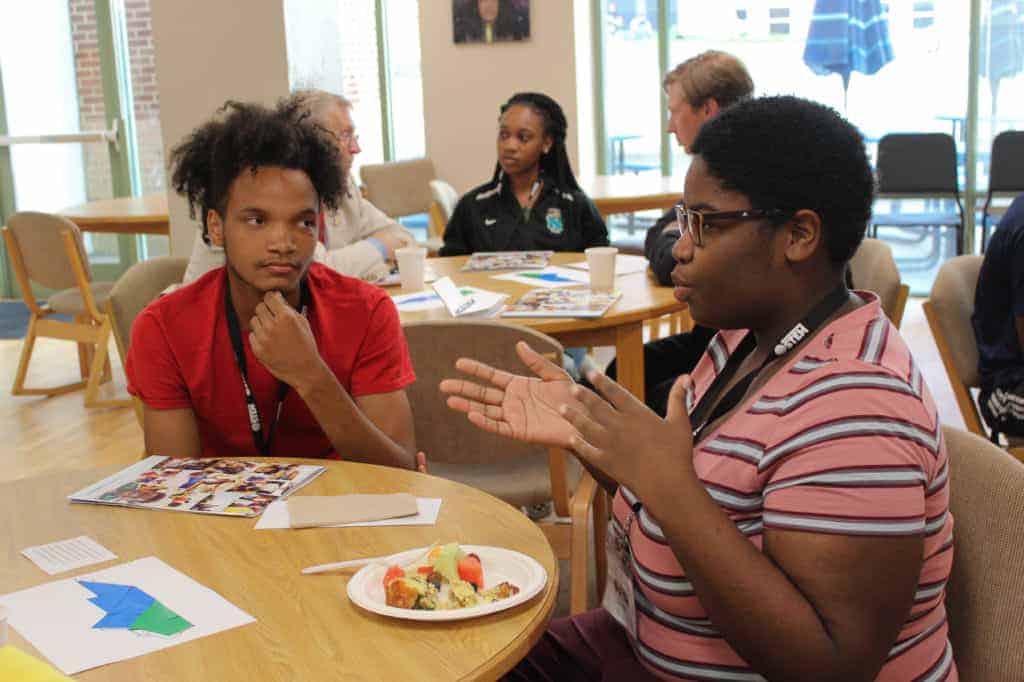
For other students, ENC STEM simply helped them open up to others.
“I was building a character trait that I didn’t really have: to start a conversation,” said Anthony Shaw, a rising junior at KIPP Pride High School. “I feel like in college it will help me a lot. If I can go up to professors and introduce myself and get the type of help that I need, then I can push through.”

